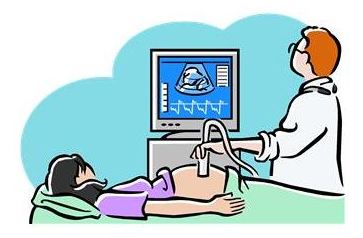
ultrasound technology
Typically working with doctors to help prepare patients for operations, run the imaging equipment, and ensure high-quality images are recorded for correct interpretation by a physician, sonographers. How much do Ultrasound Techs Make, involve interacting with patients who could be uncomfortable or anxious, therefore their duties call for not only technical knowledge but also people skills.
Ultrasound technicians usually focus on one or more fields of sonography, including:
- Abdominal sonogram
- Obstetric and gynecologic ultrasound
- Echocardiography, cardiac sonography
Significance of salary data
Several reasons make it important to know how much ultrasound technicians earn:
- Career Planning: Salary information can assist people thinking about this profession decide if it fits with their financial objectives.
- Many people hope to guarantee that the possible income would compensate for the price of education and qualification.
- Location Decisions: Salary data may affect a person’s choice of residence or employment since pay might vary considerably depending on location.
- Knowing industry norms will give both novice and seasoned sonographers negotiating leverage, allowing them to secure better compensation packages.
An ultrasound technician performs what?
Operating ultrasound devices and supporting doctors are core responsibilities of ultrasound technicians. Their main obligations consist in:
- Explaining the process to help patients reduce anxiety while getting ready for imaging procedures.
- Operating ultrasound devices to produce internal body images.
- Ensuring correct and valuable diagnostic information by assessing image quality.
- Working with doctors to analyze the findings and go over possible follow-up actions.
- Maintaining patient records and following safety and privacy regulations.
- Doing equipment maintenance and troubleshooting basic technical problems.
- In certain fields such obstetric sonography, technicians may track fetal development; cardiac sonographers may evaluate heart structure and function.
Workplaces:
Ultrasound technicians work in several venues, including:
- Hospitals, the most often used workplace, sometimes have around-the-clock operations demanding shift work.
- Outpatient clinics, which usually have set working hours, might emphasize routine testing.
- Usually more specialized, private physician offices could offer a closer-knit workplace.
- Standalone Imaging Centers focus on several imaging techniques.
- Some technicians operate in mobile units traveling to sparsely populated or underprivileged regions.
- Every work environment has different expectations, hours, and degrees of patient contact that might affect pay and job satisfaction.
Typical Salary for Ultrasound Technicians
- Average annual earnings for ultrasound technicians nationwide are around $84,000, says Bureau of Labor Statistics (BLS). However, experience, field of expertise, and geography could all affect this figure quite a bit.
- Generally speaking, entry-level ultrasound technicians make $60,000 to $65,000 yearly.
- Over $100,000 yearly is possible for more experienced or specially trained sonographers.
- Often, states like California, Washington, Massachusetts, and Oregon have higher average wages because of increased demand and more expensive living.
Hourly and annual pay, median
- Median hourly wage: roughly $40.00.
- About $83,000 per year is the median annual wage.
The median wage reflects the midpoint of the salary range: half of all ultrasound technicians earn more, half less. Given that exceptionally high or low wages could distort the average (mean), this is viewed as a more correct reflection of normal remuneration. Those employed in urban settings and in fields like cardiac sonography or neurology also frequently earn more salaries.
Elements Influencing How much do Ultrasound Techs Make?
Several important elements might cause ultrasound technician salaries to differ greatly. Knowing these factors enables professionals and job seekers find ways to maximize earning potential.
Education and Certifications
- Directly influencing earning potential are educational background and credentials.
- Although a bachelor’s degree might lead to higher pay and more senior positions, the least qualification is a two-year associate degree.
- Highly sought after are certifications from well-known organizations such American Registry for Diagnostic
- Medical Sonography (ARDMS) or Cardiovascular International (CCI).
Popular certifications include many ones:
- RDMS (Registered Diagnostic Medical Sonographer)
- Registered Diagnostic Cardiac Sonographer (RDCS)
- RVT (Registered Vascular Technologist)
- Cardiac, vascular, OB/GYN specialties
Specialization raises both the need of skills and the remuneration. Among the most lucrative fields are:
- Often among the highest paid, cardiac sonography assesses the blood flow and heart.
- Vascular sonography emphasizes circulation and blood arteries.
- OB/GYN Sonography deals with women’s reproductive health, pregnancy; extensively employed in hospitals and clinics.

Geographic Position
Location is very important since it affects salary differences in:
- Living expenses
- Demand locally
- Budgets of state in public institutions
For instance:
- Greater living costs and more need cause California and Massachusetts often to cost more.
- Lower base salaries in rural or less expensive states could be offset by better benefits or lesser competition.
Public vs. Salaries vary with the kind of employer:
- Private hospitals or diagnostic facilities in the private sector sometimes provide greater starting pay, incentives for performance, and bonuses.
- Although public sector positions—such government hospitals, academic institutions—may pay somewhat less, they make up for it with job security, retirement perks, and healthcare.
- Due to short-term demand and flexibility needs, contract-based travel sonographers might make premium rates.
State-by-state salary comparison of How much do Ultrasound Techs Make?
Depending on the state in which they operate, ultrasound technicians can make rather varied salaries. Factors like population density, local competition, and regional healthcare funding all have an impact on this.
Highest and Lowest Paying States
According to recent data, the highest-paying states for ultrasound technicians are:
| State | Average Annual Salary |
| California | $108,000+ |
| Hawaii | $100,000+ |
| Washington | $95,000+ |
| Oregon | $94,000+ |
| Massachusetts | $93,000+ |
The lowest-paying states typically include:
| State | Average Annual Salary |
| Alabama | $65,000–$70,000 |
| Mississippi | $66,000 |
| Arkansas | $67,000 |
| South Dakota | $68,000 |
| West Virginia | $68,000 |
Regional Trends and Cost of Living Adjustments
States on the West Coast usually pay more but also have higher cost of living.
Especially in metropolitan areas, northeastern states such New York and Massachusetts provide aggressive salary.
Southern states sometimes provide lower pay but could have more cheap housing, transportation, and taxes.
Though they may provide hiring incentives to draw techs, rural regions may have less job openings.
Effect work environment on How much do Ultrasound Techs Make?
An ultrasound technician’s salary is greatly influenced by where they work. Different environments provide different benefit packages, remuneration systems, and work demands.
Hospitals:
- Usually pay more because of shift work, emergency services, and longer hours.
- May provide unionized benefits, night/weekend differentials, and overtime pay.
- Exposure to more difficult situations might accelerate both skill development and advancement.
- Average salary: $95,000–$85,000 yearly
Publication Clinics:
- Often running on Mondays through Fridays, they offer a better work-life balance.
- May pay a little less than hospitals because of fewer emergency services.
- Work is often more routine and predictable.
- Average salary: $75,000 to $85,000 yearly
Private Practice:
- Includes specialized diagnostic facilities, cardiology groups, private OB/GYN clinics.
- Offers competitive compensation, particularly in sought-after fields.
- In small group settings, may include bonuses or profit sharing.
- Average salary: yearly $80,000–$95,000

Academic Institutions:
- Usually provide great benefits including pension plans and tuition reimbursement, although they may pay less base pay.
- Work can involve helping with research or teaching pupils.
- Perfect for anyone curious about education or less demanding surroundings.
- Average salary: $70,000 to $80,000 yearly
Salary development throughout time
- As ultrasound technicians acquire experience and improve their professional qualifications, their pay should rise.
- Typically, I make between $60,000 and $70,000 annually.
- These positions usually need close monitoring and emphasize fundamental imaging assignments.
- With steady performance and extra credentials, salaries might soar dramatically in the first several years.
Mid-Level (5–10 Years):
- Earn $75,000 to $90,000 yearly.
- May qualify for specialized roles, team lead jobs or mentoring fresh recruits.
Senior-Level ( ten years):
Often make over $95,000 yearly.
Further enhancing income potential, may take on supervisory, administrative, or teaching responsibilities.
Options for Career Advancement
- Specializing in fields such vascular, cardiac, or musculoskeletal sonography.
- Rising to be clinical coordinator, department head, or lead technologist.
- Moving into positions in equipment sales, clinical education, or research.
- For positions in healthcare administration or education, you should meet either a Bachelor’s or Master’s degree.
Other Medical Imaging Career Comparison
- Ultrasound technicians are members of a larger family of medical imaging specialists, all of whose income expectations vary.
- Radiologic technologists (X-ray techs) Radiation-based imaging should be used (e.g., X-rays, fluoroscopy).
- Average salary: $65,000 to $75,000 yearly.
- Usually less than ultrasound technicians owing to fewer specializations and somewhat lower training costs.
- Use sound waves (non-ionizing radiation) to make the work safer long-term.
- Average salary: $80,000 to $90,000 annually.
- Often more compensation results from specialized training and increased demand in cardiac diagnosis and obstetrics.
- MRI Technologists are Utilize magnetic resonance imaging to create three-dimensional body scans.
Demand particular certified training
- Average salary: $85,000–$100,000 yearly.
- CT (computed tomography) technologists are trained on data up to October 2023.
- Utilize cutting-edge X-ray technology to produce cross-sectional images.
- usually work in emergency environments; more radiation exposure
- Average salary: $80,000-$90,000 yearly.

| Profession | Average Annual Salary |
| Ultrasound Tech | $80,000–$90,000 |
| Radiologic Tech | $65,000–$75,000 |
| MRI Technologist | $85,000–$100,000 |
| CT Technologist | $80,000–$90,000 |
How to Increase Your Earning Potential
- Through specialization, skill honing, and career advancement, ultrasound technologists have multiple avenues to increase How much do Ultrasound Techs Make?
- Advanced degrees—such as a bachelor’s or master’s in healthcare administration or diagnostic medical sonography—pursued may result in either teaching or leadership positions.
Receiving Extra Certifications
Getting additional credentials broadens the scope of practice and opens up more financially rewarding employment. These include:
- Registered Diagnostic Cardiac Sonographer, RDCS, is
- RVT (Registered Vascular Technologist)
- RMSKS (musculoskeletal sonographer)
- Advanced Cardiac Sonographer ( ACS) for leadership positions in cardiology.
- Particularly in fields with high demand, some employers provide pay increases or rewards for every certification obtained.
Training in high-demand fields
Concentrating on specialties in great demand usually results in improved pay and career stability. These comprise:
- Cardiac sonography resulting from the increase in diagnosed heart illnesses.
- Used to find blood clots and vascular diseases, vascular sonography is
- OB/GYN, which remains in need because of regular pregnancy tracking.
- Often commanding top dollar and perhaps having more job options than generalists, specialists
Concluding How much do Ultrasound Techs Make?
Ultrasound technicians have good job prospects since stable demand and a developing healthcare sector propel employment rates. Key drivers for How much do Ultrasound Techs Make? are the growing population, greater stress on non invasive diagnostic methods, and broader healthcare reach. Outpatient care facilities, mobile diagnostic services, and rural healthcare networks particularly drive demand. The rising application of sonography in emergency medicine, sports medicine, and preventive care is also driving development. Early diagnosis will depend heavily on ultrasound technology as healthcare changes from reactive to preventive care.
Frequently Asked Questions
Do ultrasound technicians earn more with certifications?
Indeed, certifications in specialized fields such echocardiography or vascular sonography can substantially increase salary.
Which state has the highest compensation for ultrasound technicians?
California usually ranks highest in average pay for ultrasound technicians based on the most recent data.
Is financially worth it being an ultrasound technician?
It is viewed as a financially wise career given its decent pay, brief training period (usually two years), and increasing demand.
Do ultrasound technicians have the option of working on contract or part-time?
Indeed, many ultrasound technicians work part-time, on contract, or in travel-related roles that can pay more hourly.
Read more about Tech News on Technospheres.



